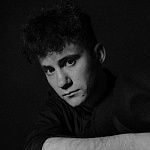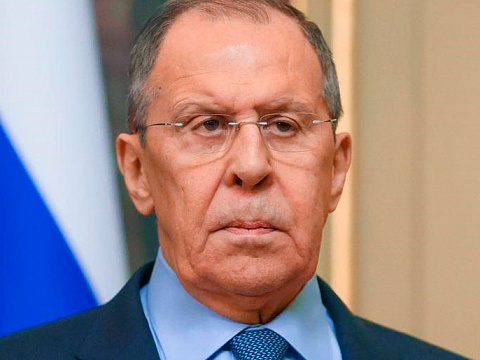Tooth for Tooth – Bioimplants Have Become A Reality
A little mouse has a microscopic opening in a jaw made with a mini toylike bur. That is how an experiment on teeth growing begins. It is not easy to make surgery on a jaw of a rodent. It’s an exquisite workmanship. All tools are custom tailored. Medical scientists admit that they have been training the whole year.
"Look here, please – the thinnest, absolutely thin burs. The smallest ones you can imagine. It goes without saying, they are sterile."
They place a rudiment of a future tooth in the hole in jaw and fix it with medical solution. The bioimplant will grow in 3-4 weeks. The Russian technology is the least traumatic and almost painless for rodents. Throughout the whole surgery, the mouse is under anesthetic. What is more, our scientists do not extract teeth, like their foreign colleagues do, but grow additional ones.
Galina Runova, Associate Professor of the Department of Periodontology, Moscow State University of Medicine and Dentistry: "We make only one opening, that is we anesthetize a mouse only once. And really, after they recover from anesthesia, they feel quite all right. They do not cease taking food or developing. They do not suffer from these painful effects, diseases. When they have to rehabilitate, endure this extraction. There is nothing like that. Since perforation is very small, it is fixed, bleeding does not take place."
The Russian know-how consists in this operation, simple at first sight. Japanese were the first to try growing teeth, then similar researches were conducted in Europe. But foreign scientists first grew a dental germ in a kidney acting as a so-called bioreactor.
While it can be done with mice, you can’t do it with a human. It is unlikely that anyone agrees to grow up teeth in their organs, even for themselves. Russian scientists managed to avoid this stage. They learned to grow tooth right in a jaw. What is more, such method increases the likelihood of survival of bioimplants.
Igor Malyshev, Head of the Department of Pathophysiology, Moscow State University of Medicine and Dentistry: "The "connection" to the nervous system is already happening, roots of nerves grow, vessels grow. You can stimulate it by adding nerve growth factors, vessel growth factors. Only to understand this process. To activate the immune system of a tooth somehow. It is also a big bonus – to grow it right in a jaw.
It was important for us to show the clinical acceptability of technology. Whether it is possible to do it. Essentially, we showed that a rudiment of a tooth can be planted directly in a jaw. In a place where a tooth was extracted, or did not grow at all, or for some reason the tooth was damaged."
The Russian technology has a number of other advantages. Because the rudiment of tooth grows in its natural environment, such bioimplants are closest to natural teeth in structure.
Oleg Yanushevich, Rector of the Moscow State University of Medicine and Dentistry: "In my opinion, cultivation of people’s own teeth will allow to restore, so to say, chewing function and esthetic function better than implantation. And I hope, in the next 10 years, we will be able to approach it."
Of course, the technology is to be enhanced and adapted. The main problem is a source of stem cells for teeth cultivation. In case of mice, they are taken from embryos. In case of humans, it is impossible. However, Russian scientists have ideas in this respect. Stem cells from hair bulbs also can be used as a source material of a rudiment of tooth.
Igor Malyshev, Head of the Department of Pathophysiology, Moscow State University of Medicine and Dentistry: "We think of a hair just as if it was a tooth, but thin and black. When we made an ultrastructural research, we found them very similar. The same niches of stem cells, the same cells – epithelial, mesenchymal. Therefore, we are beginning to work on using the cells of a hair bulb. And it can be taken from anyone. Take a hair from a 90-year-old man, from here (shows), pull it out. And there you will find as many valuable stem cells as you want. I think, the prospects are rooted here!"
The experiments of Russian dentists can be useful for the development of the whole branch of biotechnologies. This is a step forward towards breakthroughs and bigger researches. Specialists are sure they can elaborate the principles of cultivation of other human organs through the example of dental implants.
Oleg Yanushevich, Rector of the Moscow State University of Medicine and Dentistry: "Why is tooth unique in this respect? Tooth is also an organ, just like liver, heart, and so on. And of course, by making these researches, we can break, so to say, those codes, which will help to grow an artificial heart or liver in the nearest future. That it is much more important for people than just tooth growing!
Biomedical technologies will come to doctors – this is really just around the corner. Tooth growing and use of robot complexes – all this will make fundamentals of medicine in 20-30 years."
While the prospect of tooth growing still appears to be rather long-term, other findings of Russian medical researchers can be brought to life much faster. The Moscow State University of Medicine and Dentistry can already grow the most solid body tissue – tooth enamel. It means there will be no need to fill a tooth to control cavities – the damaged site will be grown anew.
Artem Evdokimov, Kirill Palmovsky, Alexander Yermolaev. TV BRICS.
"Look here, please – the thinnest, absolutely thin burs. The smallest ones you can imagine. It goes without saying, they are sterile."
They place a rudiment of a future tooth in the hole in jaw and fix it with medical solution. The bioimplant will grow in 3-4 weeks. The Russian technology is the least traumatic and almost painless for rodents. Throughout the whole surgery, the mouse is under anesthetic. What is more, our scientists do not extract teeth, like their foreign colleagues do, but grow additional ones.
Galina Runova, Associate Professor of the Department of Periodontology, Moscow State University of Medicine and Dentistry: "We make only one opening, that is we anesthetize a mouse only once. And really, after they recover from anesthesia, they feel quite all right. They do not cease taking food or developing. They do not suffer from these painful effects, diseases. When they have to rehabilitate, endure this extraction. There is nothing like that. Since perforation is very small, it is fixed, bleeding does not take place."
The Russian know-how consists in this operation, simple at first sight. Japanese were the first to try growing teeth, then similar researches were conducted in Europe. But foreign scientists first grew a dental germ in a kidney acting as a so-called bioreactor.
While it can be done with mice, you can’t do it with a human. It is unlikely that anyone agrees to grow up teeth in their organs, even for themselves. Russian scientists managed to avoid this stage. They learned to grow tooth right in a jaw. What is more, such method increases the likelihood of survival of bioimplants.
Igor Malyshev, Head of the Department of Pathophysiology, Moscow State University of Medicine and Dentistry: "The "connection" to the nervous system is already happening, roots of nerves grow, vessels grow. You can stimulate it by adding nerve growth factors, vessel growth factors. Only to understand this process. To activate the immune system of a tooth somehow. It is also a big bonus – to grow it right in a jaw.
It was important for us to show the clinical acceptability of technology. Whether it is possible to do it. Essentially, we showed that a rudiment of a tooth can be planted directly in a jaw. In a place where a tooth was extracted, or did not grow at all, or for some reason the tooth was damaged."
The Russian technology has a number of other advantages. Because the rudiment of tooth grows in its natural environment, such bioimplants are closest to natural teeth in structure.
Oleg Yanushevich, Rector of the Moscow State University of Medicine and Dentistry: "In my opinion, cultivation of people’s own teeth will allow to restore, so to say, chewing function and esthetic function better than implantation. And I hope, in the next 10 years, we will be able to approach it."
Of course, the technology is to be enhanced and adapted. The main problem is a source of stem cells for teeth cultivation. In case of mice, they are taken from embryos. In case of humans, it is impossible. However, Russian scientists have ideas in this respect. Stem cells from hair bulbs also can be used as a source material of a rudiment of tooth.
Igor Malyshev, Head of the Department of Pathophysiology, Moscow State University of Medicine and Dentistry: "We think of a hair just as if it was a tooth, but thin and black. When we made an ultrastructural research, we found them very similar. The same niches of stem cells, the same cells – epithelial, mesenchymal. Therefore, we are beginning to work on using the cells of a hair bulb. And it can be taken from anyone. Take a hair from a 90-year-old man, from here (shows), pull it out. And there you will find as many valuable stem cells as you want. I think, the prospects are rooted here!"
The experiments of Russian dentists can be useful for the development of the whole branch of biotechnologies. This is a step forward towards breakthroughs and bigger researches. Specialists are sure they can elaborate the principles of cultivation of other human organs through the example of dental implants.
Oleg Yanushevich, Rector of the Moscow State University of Medicine and Dentistry: "Why is tooth unique in this respect? Tooth is also an organ, just like liver, heart, and so on. And of course, by making these researches, we can break, so to say, those codes, which will help to grow an artificial heart or liver in the nearest future. That it is much more important for people than just tooth growing!
Biomedical technologies will come to doctors – this is really just around the corner. Tooth growing and use of robot complexes – all this will make fundamentals of medicine in 20-30 years."
While the prospect of tooth growing still appears to be rather long-term, other findings of Russian medical researchers can be brought to life much faster. The Moscow State University of Medicine and Dentistry can already grow the most solid body tissue – tooth enamel. It means there will be no need to fill a tooth to control cavities – the damaged site will be grown anew.
Artem Evdokimov, Kirill Palmovsky, Alexander Yermolaev. TV BRICS.
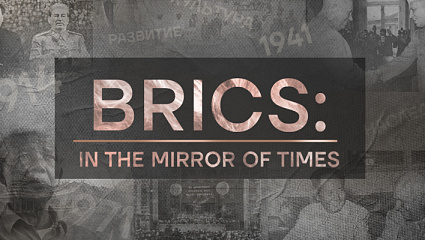

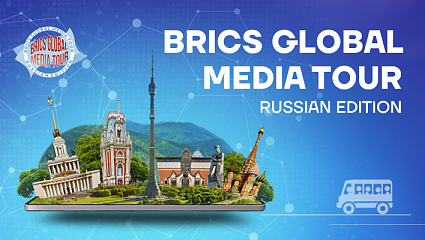

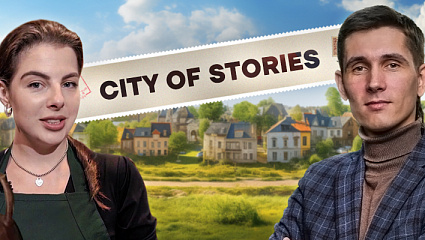


 DIGITAL WORLD
DIGITAL WORLD























